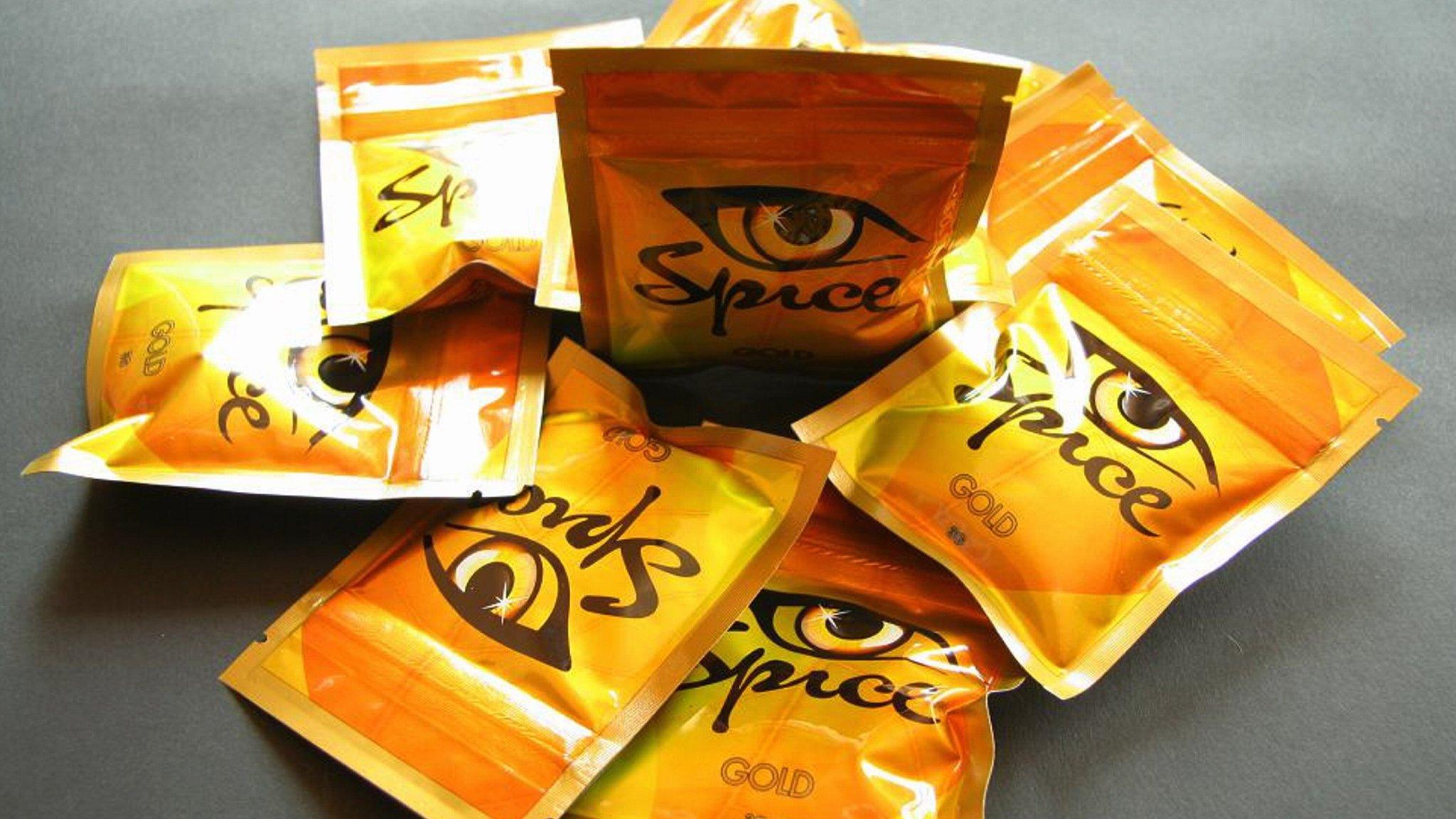Spice samples in Manchester were '10 times more potent'
- Published
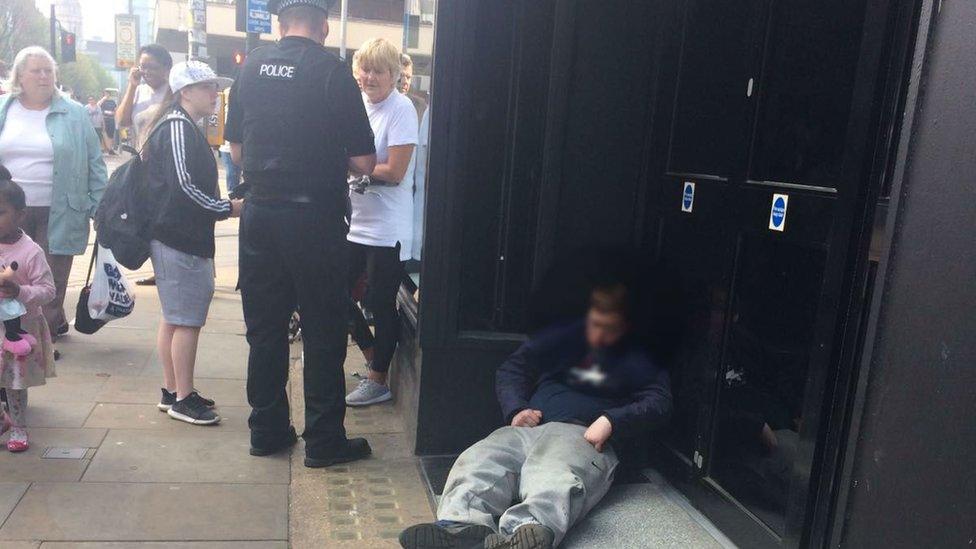
Manchester emergency crews dealt with a reported spike in Spice users in March and April
Samples of the illegal drug Spice that caused a spike in hospitalisations in Manchester were "10 times more potent than normal", an academic has said.
In spring, there was a surge in calls about people taking the substance that is said to "zombify" users.
Dr Oliver Sutcliffe, a chemist at Manchester Metropolitan University, said the increased potency was probably due to a "manufacturing error".
He said the compound had caused "similar catatonic states" in New York.
"The potency of the products that were seen in Brooklyn matched the same levels of potency that we were seeing in Manchester samples," said Dr Sutcliffe, who is a lecturer in psychopharmaceutical chemistry.
"We think this has arisen through a manufacturing error on the part of the drug manufacturers rather than being put into the sample specifically to increase the potency."
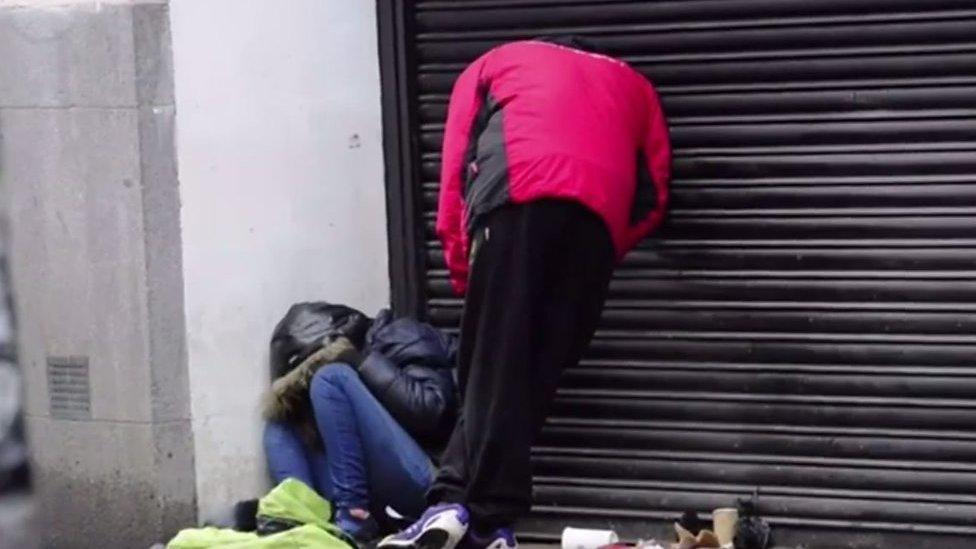
The drug was said to leave people in a "zombie-like state"
A blanket ban on previously-called legal highs - also known as new psychoactive substances - came into force in the UK in May 2016.
They include spice, which is usually a brand name for synthetic cannabinoids that mimic the effects of cannabis.
"Synthetic cannabinoids have been chemically designed in a laboratory to be more effective [than natural cannabis]... therefore you are producing a much more profound effect at significantly lower doses," Dr Sutcliffe said.
In April, Greater Manchester Police said Spice-related incidents were putting pressure on public services, adding it was "a problem that we cannot afford to get any worse".
Anyone found in possession of the substance can be jailed for up to five years.
- Published1 June 2017
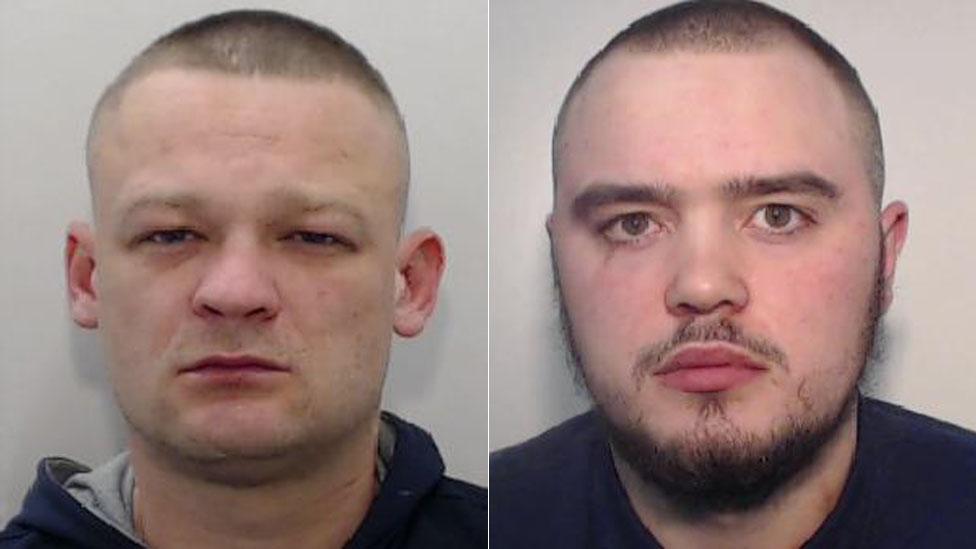
- Published12 April 2017
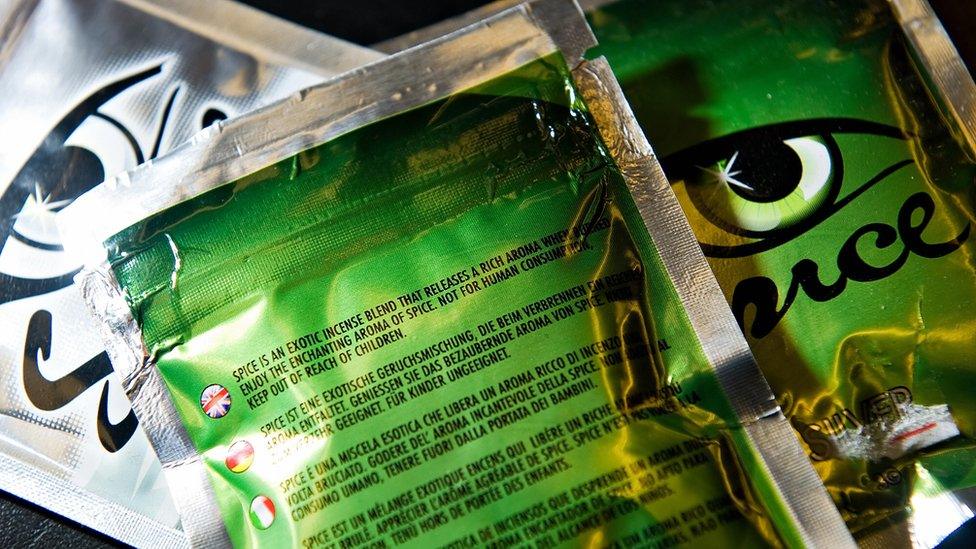
- Published10 April 2017

- Published9 April 2017

- Published8 March 2017

- Published10 May 2016
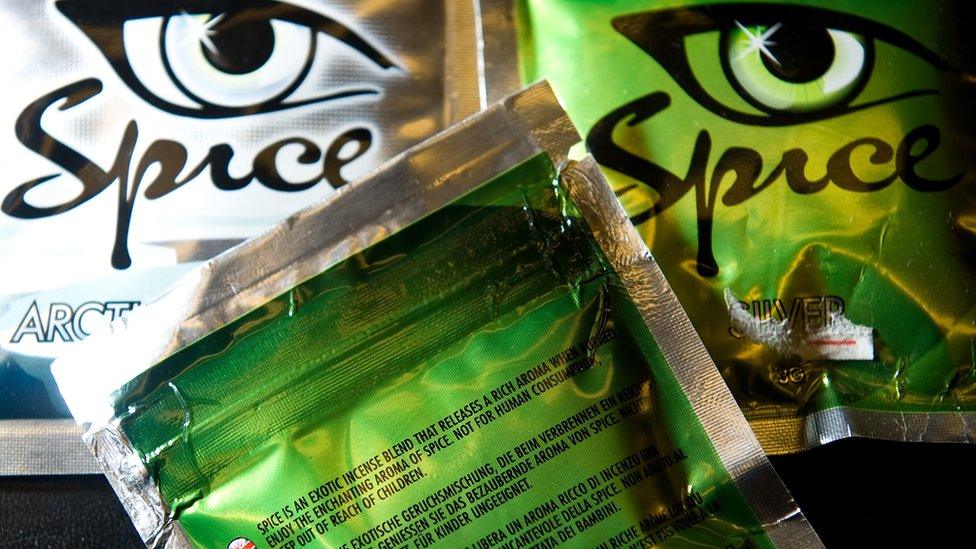
- Published13 May 2016
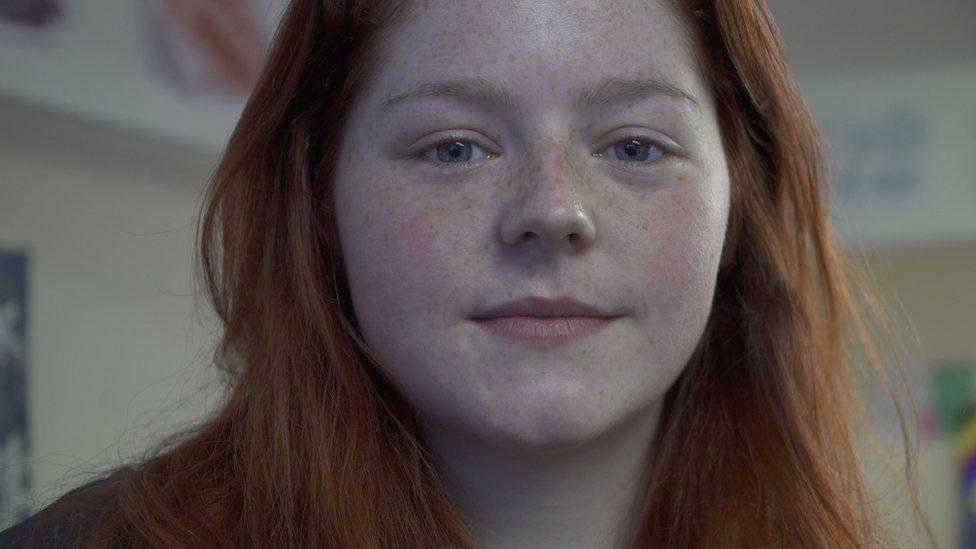
- Published24 November 2015

- Published26 May 2016
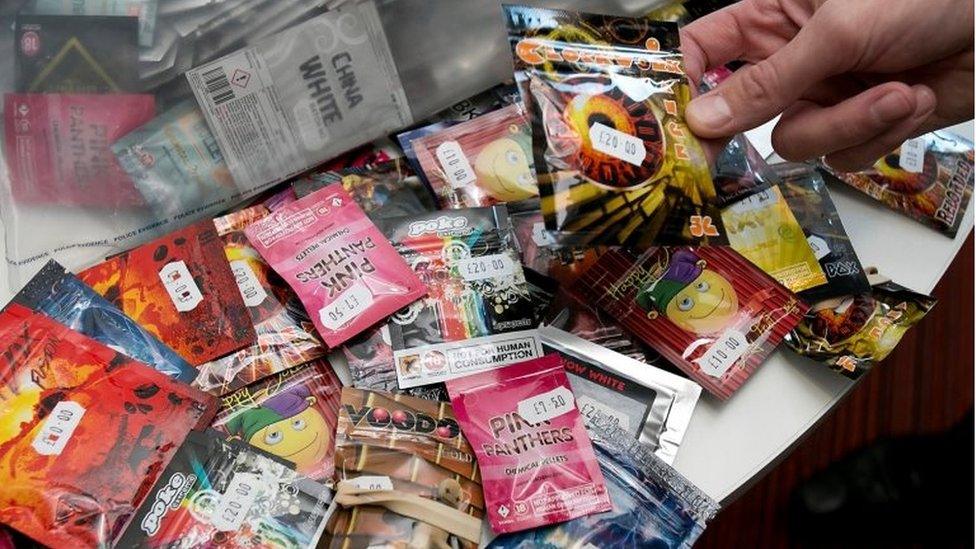
- Published22 May 2015
